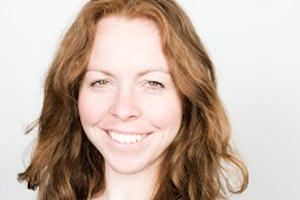University medic to help Ebola victims
01 Oct 2014
Amy joins 400 NHS volunteers training up for aid trip to Sierra Leone

A University medic has volunteered to travel to Sierra Leone to help fight the Ebola virus, which is threatening to sweep across Africa.
Dr Amy Hughes, an NHS doctor and Clinical Academic Lecturer in Emergency Response here at the University’s Humanitarian and Conflict Response Institute, is one of 400 NHS health professionals who will support communities in West Africa that are in desperate need of their knowledge and expertise.
The Ebola virus, first identified in the 1970s, causes a serious, usually fatal, disease for which there are no licensed treatments or vaccines.
This outbreak, which started last December, has already claimed more than 2,600 lives and the World Health Organisation (WHO) has warned that the number of cases could reach hundreds of thousands by January. The Center for Disease Control and Prevention (CDC) in the US claim that, at worst, Ebola could become endemic in Africa, with 1.4 million cases by the start of 2015.
Amy, 34, says: “I’ve been involved with humanitarian work for the past six years. I love the challenge it presents and the privilege of engaging with different communities.
“We will be deployed over the coming months after extensive training in the UK and then in Sierra Leone when we arrive. Each volunteer will get a full personal protection suit: zipped up hood, goggles or face shield, mask, double gloves, an apron and covering for our boots. It will be very hot, and very demanding in the field.
“Of course we will be apprehensive, and it is always a shock when you are first confronted with the devastation. The spread of the virus has been catastrophic and this week WHO revised its estimated mortality rate for Ebola from 50 per cent to 70 per cent – adding further to the fear that already grips communities where outbreaks occur.”
But, she adds: “I have learnt from my previous deployments how to develop a level of resilience to help manage things.
“There is a real passion among NHS staff to make a contribution. Those that aren’t able to deploy abroad are covering shifts at home.
“I take heart from the selflessness of William Pooley, the British nurse who recovered from Ebola, and who this week flew to the US to give blood to help save another doctor’s life. Both of them contracted the disease while working in Sierra Leone.
“It is that kind of spirit that is uniting the international community in an effort to halt the spread of this terrible disease in West Africa.”
The UK appeal is being coordinated by Save the Children, the Departments for Health and International Development, and the charity UK-Med, which hosts the UK International Emergency Medical Response Register through which NHS workers are applying to volunteer. In addition British Armed Forces are already in the country constructing an Ebola treatment unit.
